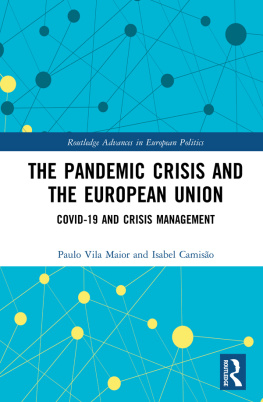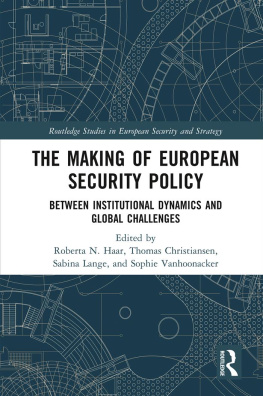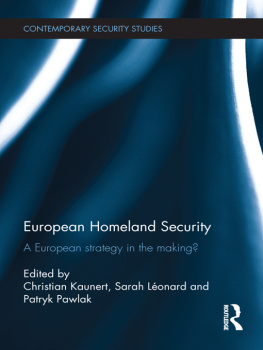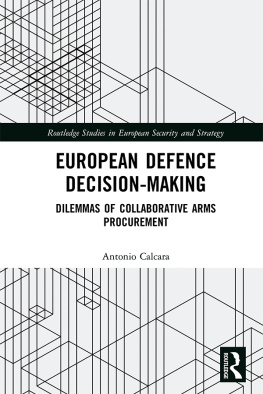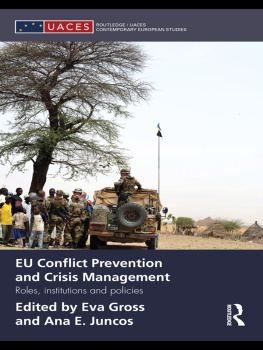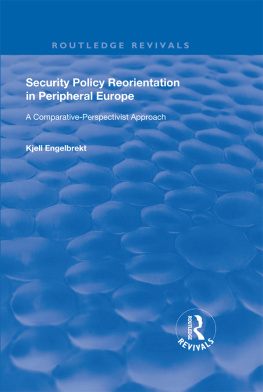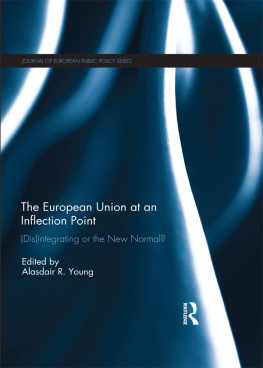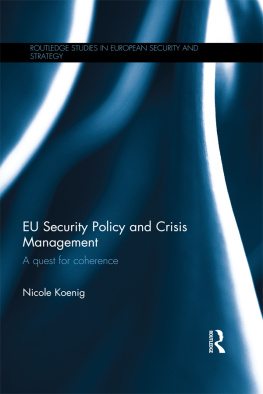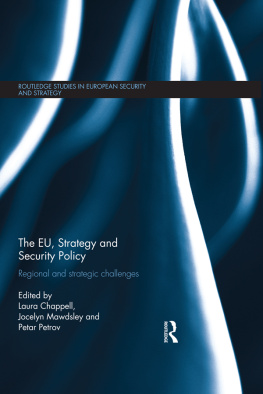First published December 2002 by Oxford University Press for
The International Institute for Strategic Studies
Arundel House, 13-15 Arundel Street, Temple Place, London WC2R 3DX
This reprint published by Routledge
2 Park Square, Milton Park, Abingdon, Oxon, OX14 4RN
For the International Institute for Strategic Studies
Arundel House, 13-15 Arundel Street, Temple Place, London, WC2R 3DX
www.iiss.org
Simultaneously published in the USA and Canada
By Routledge
711 Third Avenue, New York, NY 10017
Routledge is an imprint of the Taylor & Francis Group, an informa business
The International Institute for Strategic Studies 2002
Director John Chipman
Editor Mats R. Berdal
Assistant Editor Matthew Foley
All rights reserved. No part of this publication may be reproduced, stored in a retrieval system or transmitted in any form or by any means, electronic, mechanical or photo-copying, recording or otherwise, without the prior permission of The International Institute for Strategic Studies. Within the UK, exceptions are allowed in respect of any fair dealing for the purpose of research or private study, or criticism or review, as permitted under the Copyright, Designs and Patents Act, 1988, or in the case of reprographic reproduction in accordance with the terms of the licences issued by the Copyright Licensing Agency. Enquiries concerning reproduction outside these terms and in other countries should be sent to the publisher.
This book is sold subject to the condition that it shall not, by way of trade or otherwise, be lent, re-sold, hired out or otherwise circulated without the publisher's prior consent in any form of binding or cover other than that in which it is published and without a similar condition including this condition being imposed on the subsequent purchaser.
British Library Cataloguing in Publication Data
Data available
Library of Congress Cataloguing in Publication Data
ISBN 0-19-852799-3
ISSN 0567-932X
ABCCC Airborne Battlefield Command and Control Centre
ALSL Alternative Landing Ship Logistics
ARRC Allied Command Europe Rapid Reaction Corps (NATO)
AWACS Airborne Warning and Control System
C3 Command, Control and Communications
CBRNE Chemical, Biological, Radiological, Nuclear and Enhanced high explosive
CDM Capabilities Development Mechanism (EU)
CFSP Common Foreign and Security Policy (EU)
CJTF Combined Joint Task Force (NATO)
CONOPS Concepts of Operations
COREPER Committee of Permanent Representatives (EU)
COP Contingency Operations Plans
DoD Department of Defense (US)
DCI Defence Capabilities Initiative (NATO)
DSACEUR Deputy Supreme Allied Commander Europe (NATO)
EC European Community
ECAP European Capabilities Action Plan (EU)
ESDI European Security and Defence Identity
ESDP European Security and Defence Policy (EU)
EMU European Monetary Union
EU European Union
EUROCORPS European Corps
EUROMARFOR European Maritime Force
FAWEU Forces Answerable to Western European Union
GDP Gross Domestic Product
GPS Global Positioning System
HFC Helsinki Force Catalogue (EU)
HHC Helsinki Headline Catalogue (EU)
HPC Helsinki Progress Catalogue (EU)
HTF Helsinki Headline Goal Task Force (EU)
HQ Headquarters
ICC International Criminal Court
ICRC International Committee of the Red Cross
IFOR Implementation Force (NATO)
IMF International Monetary Fund
J-STARS Joint-Surveillance Target Attack Radar System
JV Joint Vision (US)
KFOR Kosovo Force (NATO)
LPD Landing Platform Dock
NAC North Atlantic Council (NATO)
NATO North Atlantic Treaty Organisation
NBC Nuclear Biological and Chemical
NGO Non-Government Organisation
NRF NATO Response Force
OCCAR Organisation Conjoin te de Coopration en matire d'Armement
OPLAN Operations Plan
OSCE Organisation of Security and Cooperation in Europe
PfP Partnership for Peace (NATO)
RMA Revolution in Military Affairs
SACEUR Supreme Allied Commander Europe (NATO)
SACLANT Supreme Allied Commander Atlantic (NATO)
SAS Special Air Service (UK)
SEAD Suppression of Enemy Air Defence
SFOR Stabilisation Force (NATO)
SG/HR Secretary-General of the Council of the EU/High Representative for the CFSP
SHAPE Supreme Headquarters Allied Powers Europe (NATO)
SITCEN Joint Situation Centre (EU)
UAV Unmanned Aerial Vehicle
UN United Nations
UNPROFOR UN Protection Force
WEAG Western European Armaments Group
WEU Western European Union
For decades, the countries of Western Europe depended on US protection for their security. Today, the European Union (EU) has become a net exporter of security. The question that now confronts European governments and institutions is how much more security they should be producing and projecting, and with what means. Much of the debate over European and transatlantic capabilities has focused on institutional labels, defence expenditures, costly procurement projects and comparisons between European military potential and US military power. However, the real question is how much more individual European governments can and wish to do in the security field, and which new formulas can produce greater output. The debate about capabilities is really a debate about the extent of Europe's ambition for an active, responsible role in international security, and whether Europe's societies deem acceptable the risks and sacrifices that this would entail.
The outcome of this debate will be shaped by wider changes in the old paradigms of security. The boundaries between military and civilian security and between external and internal security have become more fluid, and economic and social inter-dependence, both within Europe and between Europe and the rest of the world, has increased. As the US focuses increasingly on homeland defence, counter-terrorism and crisis regions beyond Europe, Europe itself must be prepared to take more responsibility for its own security. That governments and publics on both sides of the Atlantic have different perceptions of the shape of the threat and the meaning of multinational cooperation only adds to this complexity.
The EU's approach to security has been based on the conviction that military means are just one element of an effective, sustainable security policy, and usually not the most important one. While this may in part reflect perceptions distorted by the specific experience of the East-West confrontation in Europe, it also corresponds with the belief that not every problem has a military solution. This leads to a broader understanding of capabilities: the ability to manage crises, or better still prevent them. Europe's advantage is seen as lying in precisely this cocktail of security-related measures and activities.
The EU's priorities and modes of operation will never be the same as those in the US, in NATO or in US-dominated war-fighting coalitions. It is not sufficient to compare European and US defence spending or military assets. European capabilities must be judged over the whole spectrum of security-projection measures, and in relation to accepted political goals. Hoping for significantly increased defence budgets would be unrealistic in the current political climate in most European countries. The corset of macro-economic performance imposed by European Monetary Union (EMU), together with high unemployment, ageing populations and growing health care costs, leaves little room for defence-related growth. Besides, structural changes are often slow and politically painful, and rarely produce rapid savings. For added capabilities, coordination and cooperation need to increase in all areas relevant to security, including diplomacy, the military, the police, civil emergency protection, post-conflict reconstruction, international trade and economic measures. The issue is how to get more out, with limited resources.



